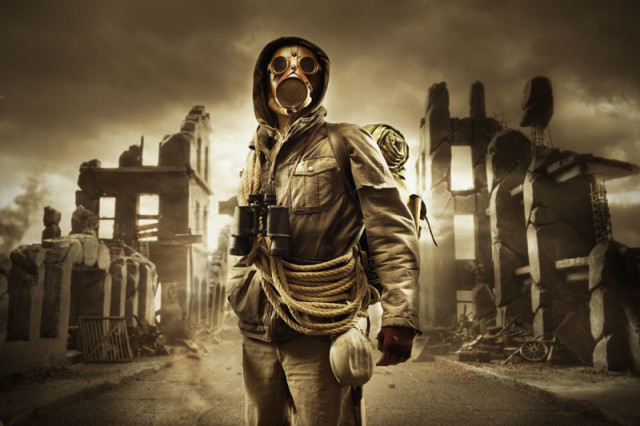Should We Fear a Massive Portland Earthquake, Or Just Prepare For It?

It’s been funny to watch the Portland Monthly staff’s reactions to The Big One, editor at large Randy Gragg’s feature on Portland’s earthquake preparations. Funny strange, not funny ha-ha. Discussion of a mag-9 earthquake that will pulverize buildings, flood the Oregon Coast, and precipitate a prolonged humanitarian crisis where once Portlandia skits and single-origin espresso ruled the day has a way of evoking seldom-seen personality traits.
Some of my colleagues all but covered their ears and started singing “Penny Lane” to blot out geologists’ grim forecasts. One hardened journalist looked ready to weep while reading the page proofs. And then there were those oddly giddy at the prospect of living by their wits (and rain barrels) in the aftermath. I know where I’m headed after the shaking stops.
Beyond the shock-and-awe details of the probable (actually, inevitable—but it could be now, or 50 years from now, or later) quake, “The Big One” is really a call to action. I personally found the complete picture at least as inspiring as it is unsettling. Government officials across Oregon are already working to prepare for a quake that will rattle the whole Northwest. Community volunteers (though we need more) are already training for a postdisaster mobilization. Restaurants, shelters, and even bike delivery services are talking about how they’ll coordinate when our tectonic number comes up.
And the story examines many more moves we can make, individually and collectively, to get ready. I grew up in a mountainous, remote state where some people take preparedness very seriously. (Admittedly, that particular subculture worries more about a United Nations takeover than an earthquake.) I may have subconsciously reacted to this formative atmosphere by maturing into a person notably unprepared for any emergency more pressing than a midsummer beer shortage. Like many of our readers, whom we polled on the subject, I keep no stockpile of canned goods or water reserve on hand. I don’t carry a whistle on my key chain. Emergency shelter? Um, I could recommend a nice hotel?
I came away from our story resolved to change my ways. Some of Portland’s prequake to-do list does look daunting. (Should we fix our roads and bridges? Totally. I’m for it. Proceed.) But according to the officials who guide our city’s preparations, crucial steps involve nothing more than judicious forethought: Neighbors should get to know each other. Families should make plans to meet up. Communities can pool resources, and individuals can learn more about the city’s physical and social fabric.
That feels doable. And in the end, it’s better to live in a prepared and resilient state of Oregon than a state of denial.
